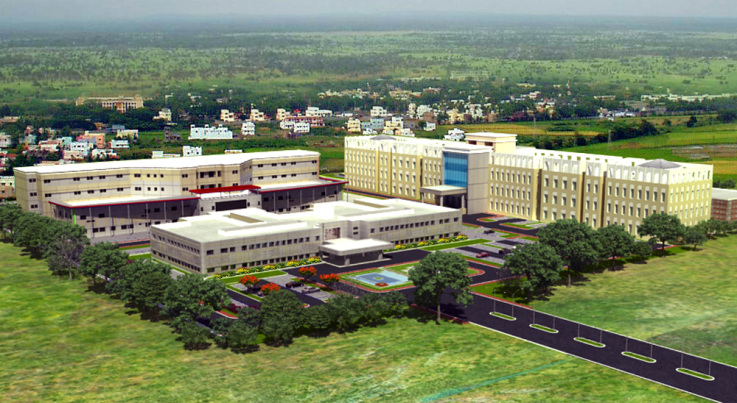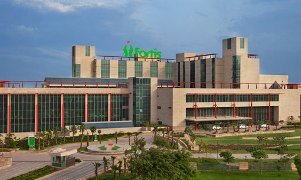Liver Transplant in India
India has become a preferred destination in the recent years for liver transplants, because of highest quality of treatment and success rates. Patients come from all countries to reading Indian Hospitals for liver and other organ transplants. It is said that the country is poised to become the 'transplant capital of the world', with some of the finest and most complicated transplant surgeries being performed here. Hospitals with highest success rate include Global hospitals, Fortis Hospitals and Medanta.
Success rate of liver transplants in India
India is amongst the highest success rates, for liver transplant in the world. This is the reason, for a large number of patients coming to India, from all over the world, for transplant surgeries, especially for liver, heart, bone marrow, kidney. The finest Doctors and hospitals have gained reputation owing to the success rate in transplant surgeries. These renowned Doctors have 95% success rates. Below is the comparison of the hospitals with highest success rate. See 'Top rated hospitals'
Care after Live Transplant Surgery
To achieve a good result after a liver transplant recipients need to :
- Go home in 10 to 15 days after the transplant
- To take medication
- Make appointment for Medical consultation
- Have a knowledge of the signs of rejection and infection
- Make healthy food choices, exercising,
- Not smoking and Not drinking alcohol
Comparison of Liver Transplant Hospitals in India with highest success rate

Global Hospital Chennai
One of the best liver hospital in Chennai, Global Hospitals has a strong team of doctors with decades of valuable experience. Liver is one of the most adaptable organs in our body and any malfunction or disorder can result in various processes being affected. Also a very tough organ, the Liver can continue to function despite certain ailments.

Fortis Hospital Noida
Fortis has one of the largest and most comprehensive organ transplant programmes in India. The institute offers a host of state-of-the-art services which include transplants of liver, kidney and heart, intestinal and GI transplants, and transplant services. The hospital provides excellent medical care and facilities for pre and post-transplant management.

Medanta Hospital Gurgaon
The Medanta Institute of Liver Transplantation and Regenerative Medicine is Asia's first of its kind, dedicated Institute offering liver transplantation [LT] and all other levels of treatment for liver and biliary diseases including cancer, both in adults and children. Medanta's team has experience of more than 1300 liver transplants and are the pioneers of Liver transplants in India,
FAQ's on Liver Transplant
Q. What is Living Donor Liver Transplantation?
Instead of waiting for a cadaveric donor to become available for transplantation, the recipient identifies a living donor. This is a relative or a close friend who is willing to consider donation. They must be willing to have a portion of their liver surgically removed, and placed into the recipient. The liver is a regenerative organ and it grows to normal size rapidly in both the donor and the recipient. The resection of a portion of the liver from the donor is a major surgery, and requires a commitment from the donor to thoroughly complete the evaluation process and follow up after surgery. All family involved with both donor and recipient should attend the education session and have all of their concerns addressed. For the recipient and the donor, the difference between a living donor and a cadaveric donor is discussed under Why consider Living Donor Transplantation. This process involves a liver resection (donor), and a liver transplant (recipient). Our network of hospitals in India has vast experience of over 5000 liver transplants in total.
Q. Advantages to Living Donor Transplantation:
- The surgery is elective, when the recipient is stable, and the prognosis is more favorable
- The recipient receives an optimal liver graft
- The ischemic time (cold time) on the organ is minimal (less damage to liver tissue)
- It increases the available donor pool
Q. Disadvantages to Living Donor Transplantation:
- Risk of death to donor is present (it is minimal, but not negligible)
- Risk of bile leak
- Psychological impact if graft fails (both donor and recipient)
- Surgery has not been performed long enough to determine the long term impact on the donor
Q. Who is a Good Donor?
- is the same size or larger than the recipient
- is the same blood type as the recipient (Rh factor is insignificant)
- is not obese
- is healthy, without major medical or psychological problems
- has no substance abuse
- is comfortable with donation (the donor may back out at any time)
Q. We would prefer that you call and ask before you assume that someone is not a good donor.
The evaluation process is extensive. Each test must be reviewed by a physician before we proceed to the next. If the surgeons feel at any point in the process that the donor is unsuitable, we may inform you that we will not consider this donor for a liver resection. This can be upsetting for both the donor and the recipient, but the conditions must be ideal to safeguard the donor. The donor evaluation is more extensive than the recipient evaluation for the transplant.
Q. Donor Evaluation:
- Formal Education process for donor, recipient, and respective family members
- Complete History and Physical
- Psychiatric and social work evaluations
- Cardiac evaluation
- Labwork is performed
- Chest x-ray
- Volumetric abdominal Cat scan
- Hepatic angiogram (liver arterial blood flow)
- MR cholangiogram (liver bile flow)
- Liver biopsy
The recipient must be evaluated and accepted by the Liver Transplant Patient Selection Committee to first determine that they require a transplant. When the recipient is cleared for the surgery, we may begin the evaluation of potential donors. We evaluate one donor at a time for each recipient.
Q. Living Donor Surgical Procedure
A date is chosen by the patient, donor, and the surgery team. The donor resection surgery takes place simultaneously with the recipient transplant. The liver is resected from the donor at the same time that the bad liver is being resected from the recipient. The surgery for the donor takes approximately 5-6 hours. The recipient surgery is longer, taking approximately 8-10 hours. The donor is observed in the ICU for approximately 24 hours and is usually home within 5-7 days. The recipient stay is longer because of their disease state prior to surgery. The possible complications for both the donor and the recipient will be discussed thoroughly with you in a teaching session before the process is even begun.
